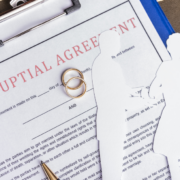You love your child and want the best for them. Your marriage may end, but you are still a parent. You need to navigate the divorce process so you start a new life in the best possible position and ensure that your child’s needs are met, too.
You Are Not Alone
Parents with special needs children are more likely to get divorced than other married couples, according to Psychology Today. It is estimated that:
- 20% of US homes have a child with a disability, special health care needs, or a chronic illness
- The divorce rate of married parents with a child with disabilities might reach 87%
- The divorce rate for those with a child who has autism is about 80%
The challenges and disagreements that can arise when parenting a special needs child may be the reason for a divorce or just one of many that pushed the relationship over the edge.
Things to Think About
When you are trying to plan your post-marriage life, think about:
- Your child’s needs, whether they are functional, medical, psychological, educational, or social
- What will meeting those needs cost in time, effort, and money
- Who will absorb those costs, and how
You may need the help of a life care specialist to come up with answers. If you and your spouse disagree about your child’s needs and care, an outside third party without a personal bias may help bring the two of you together on these issues.
Child Custody
Whether your child has special needs or not, decisions about which parent should have what kind of custody should be guided by your child’s best interests. The judge in your case is bound by law to use that standard. If the two of you agree on custody issues, the judge will ensure your plan meets that standard. If you cannot agree and the matter is litigated, that is how the judge will make a decision.
What is your situation?
- With whom will the child live?
- How much time will they have with each parent?
- How stable will each parent’s household be?
- Are both parents up to the task of caring for the child equally?
- Is one in a better position to provide care most of the time?
- If one parent is unwilling or unable to handle the child’s needs, is the other equipped to be the exclusive caregiver?
- How involved will the extended families of each parent be in helping with your child? Will one be alone, while the other will benefit from family members playing active, supporting roles?
If you have another child without special needs, what custody arrangement is best for them?
Child Support
The state’s child support formula does not account for the additional financial burdens of parenting a child with special needs, including specialized care, equipment, enhanced nutrition, or accessible housing. But a judge may order a non-custodial parent to pay more than the guideline indicates if the circumstances call for it.
Typically, the obligation to pay child support ends when the child reaches the age of majority (18) or graduates from college. But if a child with special needs requires caregiving for an extended period, if not the foreseeable future, that may be extended.
Depending on the extent of a child’s disabilities, they may qualify for government benefits (including paying for custodial and medical care), help in finding employment, and independent living. The parents must do their best to get as much help as possible for as long as possible.
The parent receiving child support should not expect the payor to pick up the tab for services that may be free or at a reduced cost, thanks to government or charitable programs.
Get the Help You Need from an Attorney You Can Trust
If you are thinking about getting divorced or have decided it is the next step, call us at (215) 608-1867. We can discuss your situation over the phone, via a teleconference, or meet in our Langhorne or Doylestown office.






